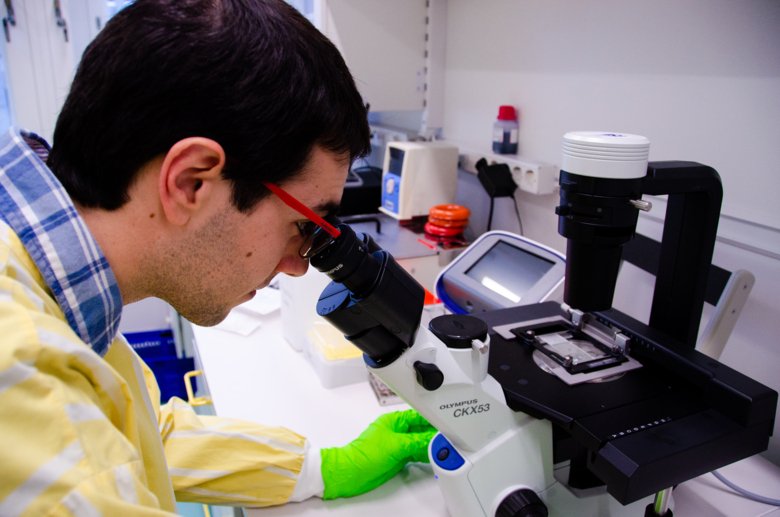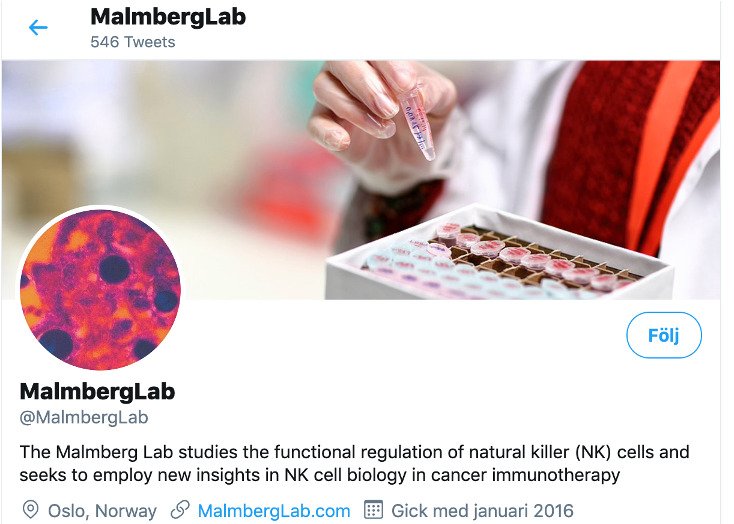Our research
The Malmberg lab focuses on understanding the cellular and molecular mechanisms underlying the formation and diversification of human NK cell repertories. A central aspect of these studies is to examine the dynamic shaping of NK cell function by killer cell immunoglobulin-like receptors (KIR). We are using a wide range of single cell technologies and imaging tools to study the genetic regulatory circuits involved in shaping the interior of the NK cell with a primary focus on lysosomal signaling.
In more translational efforts, we seek to develop an off-the-shelf NK cell therapy platform and implement new insights into NK cell biology in clinical trials for patients with advanced cancer. We are also seeking to implement new insights into the adaptive-like behavior of NK cells in the next generation of NK cell-based immunotherapy for patients with refractory or relapsing malignancies.
The research group is based both at the Oslo University Hospital and at Karolinska Institutet and is active within the NextGenNK competence center.
Keywords
NK cells, killer cell immunoglobulin-like receptors, KIR, allogeneic hematopoietic stem cell transplantation, immunotherapy, cell therapy.
Immunotherapy
In a film produced by Cancerfonden, Professor Kalle Malmberg talks about the group's research and explains how it is possible to teach the immune system to take on cancer cells (in Swedish).

Open positions
We always want to get in touch with highly motivated students and potential postdocs. If you are interested in doing research within our group, please contact the Group leader
Follow us on Twitter

